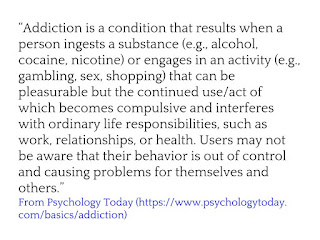I was doing a cover lesson for a colleague the other day. The students had assigned work and were, for the most part, engaged. A group at the back of the room was discussing their future plans and I could not help but overhear. The discussion centred around grades and colleges and perception of good and bad. I could also substitute acceptable and non-acceptable here. The students were assured and knowledgeable about the needs and outcomes. I wasn't really surprised as our school is an academic one and achievement encouraged. What did surprise me was that this was year 9 students talking and there was never a mention of what they were good at, what they liked and most importantly what their interests are. It looked like a real case of fixed mindset in action. I would not have to look far (or hard) to find the source and/or reasons for the views.
I was really taken by a cartoon from the South China Morning Post in Hong Kong. It is included here and to me summed up the mindset of the community, if not western societies in general. It pushed the point perfectly - do we value creativity or is it simply a distraction. I think I will leave it with you to decide, but make the point that a society is defined by the culture, and creativity is an integral part of all successful societies. Balance is, and always has been the key, and societies that ignore it do so at their own peril. It seems that the balance is not present and without putting to much meaning into the cartoon, maybe that is the point being made. It seems that creativity based subjects are being ignored in favour of others that are perceived by parents as more important.
The importance of creative outlets cannot be underestimated. Creativity is something that all winners have and is cultivated rather than ignored. I originally thought that the IBDP program provided the opportunity with arts being one of the 6 subject areas, but changes mean that students can opt out and not choose it. I am not saying by any means that other subjects do not have creativity components, but are they are not really in the same league as the creative and performing arts. As a science/chemistry teacher I value the importance of creative thinking, and encourage students to use it in solving problems. But is it really the same as true creativity that comes from the arts? I have had many excellent students who also studied creative arts as part of their program, and seen the benefits of this in both their well-being and ongoing success.
The importance of creative outlets cannot be underestimated. Creativity is something that all winners have and is cultivated rather than ignored. I originally thought that the IBDP program provided the opportunity with arts being one of the 6 subject areas, but changes mean that students can opt out and not choose it. I am not saying by any means that other subjects do not have creativity components, but are they are not really in the same league as the creative and performing arts. As a science/chemistry teacher I value the importance of creative thinking, and encourage students to use it in solving problems. But is it really the same as true creativity that comes from the arts? I have had many excellent students who also studied creative arts as part of their program, and seen the benefits of this in both their well-being and ongoing success.
There have been numerous articles of late about the pitfalls of choosing futures for our children. It seems like they all go unheeded. The rise in student anxiety and even depression among teens is the telling factor, but is largely ignored. So are the number of youth (I include pre-teen in this group) suicides and the holes that is left by these actions. We have and will always have creative and artistic members of our society. They form an important part of our societies fabric and need nurturing not marginalizing and reducing their importance. One can only hope that these two ideas are not linked.



